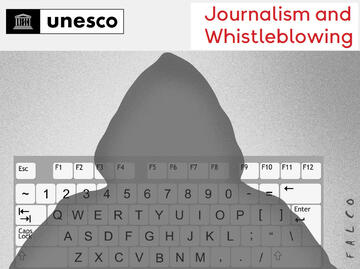
Unesco: Journalism and Whistleblowing
Written during the global health crisis caused by the COVID-19 pandemic, both cases of corruption and failures in the implementation of public policies to address the disease were globally reported. This paper has the purpose of shedding light on why both the protection of those people who take a risk by disclosing ill-doing, as well as the need to insist on the protection of investigative journalism so that it can work without fear of reprisals for their actions, is a matter of public interest. The document concludes with good practices and it provides recommendations on how to create conditions that will help reveal human rights violations or acts of corruption without fear of reprisals.
Key findings
- We learn of human rights violations, corruption or other illegal practices thanks to people who bravely denounce them publicly or share information with brave investigative journalists who promise to protect their identity.
- The relationship between journalism and whistle-blowers has been generally beneficial for both.
- Whistleblowers – whether they go to the media or directly to the authorities – must have guarantees that their actions do not lead to negative consequences, such as financial sanctions, job dismissals, undermining their family members or circles of friends, or threats of arbitrary arrest.
- When whistleblowers approach journalists, they sometimes require the protection of their identity. For this to happen, journalists need to respect the professional ethic of confidentiality and they need to not be subject to legal sanction for refusing to reveal their sources.
- Blowing the whistle should be understood as an exercise of the right to freedom of expression, not only as an instrumental tool to fight corruption or expose human rights violations.
The content of this article can be used according to the terms of Creative Commons: Attribution-NonCommercial 4.0 International (CC BY-NC 4.0) . To do so use the the wording "this article was originally published on the Resource Centre on Media Freedom in Europe" including a direct active link to the original article page.

